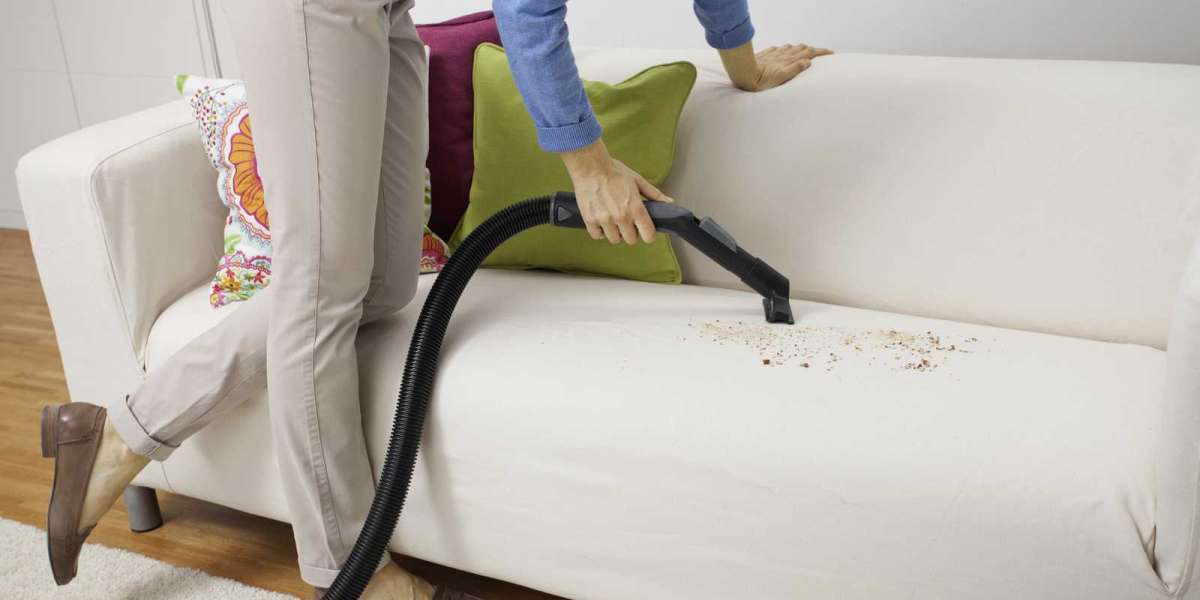Why Is Sofa Cleaning Important?
Your sofa is one of the most used pieces of furniture in your home. Over time, it accumulates dirt, dust, allergens, and even bacteria. Neglecting regular sofa cleaning can lead to unpleasant odors, stains, and even health problems. Cleaning your sofa regularly not only maintains its appearance but also eliminates harmful allergens and extends its durability.
Best Practices for Sofa Cleaning
- Understand Your Sofa’s Material
Before starting any sofa cleaning routine, identify the type of fabric or material. Sofas are typically made from materials like cotton, polyester, leather, or microfiber. Each material has specific cleaning requirements:
- Fabric Sofas: Use water-based cleaners or mild detergents.
- Leather Sofas: Opt for leather-safe cleaners to avoid cracking or discoloration.
- Microfiber Sofas: Use a specialized cleaner to prevent damage to the fabric.
- Regular Vacuuming
Vacuuming is the cornerstone of sofa cleaning. Use a vacuum cleaner with an upholstery attachment to remove dust, pet hair, and crumbs. Focus on crevices and under the cushions for a thorough clean.
How to Remove Stains from Your Sofa
- Act Quickly
The faster you address a spill, the easier it is to clean. Blot the area with a clean cloth or paper towel to absorb as much liquid as possible.
- Use the Right Cleaning Solution
For effective sofa cleaning, use a stain remover suited to your sofa’s fabric. Here are some popular methods:
- Water-Based Cleaner: Ideal for most fabric sofas. Mix mild detergent with water and gently dab the stained area.
- Vinegar Solution: For tougher stains, mix equal parts white vinegar and water. Test on an inconspicuous area first.
- Leather Cleaner: Use commercial leather-cleaning products for leather sofas. Avoid harsh chemicals.
- Don’t Rub, Blot Instead
Always blot stains rather than rubbing them. Rubbing can spread the stain and damage the fabric fibers.
Deep Sofa Cleaning Techniques
- Steam Cleaning
Steam cleaning is a highly effective method for deep sofa cleaning, especially for fabric sofas. A steam cleaner uses hot vapor to loosen dirt, kill bacteria, and remove stubborn stains. Ensure your sofa material is compatible with steam cleaning before use.
- Professional Sofa Cleaning Services
For heavily soiled or delicate sofas, consider hiring professional cleaning services. Experts have the tools and knowledge to handle even the most challenging sofa cleaning tasks.
Preventative Tips for Maintaining a Clean Sofa
- Use Sofa Covers: Protect your sofa from spills and stains by using washable covers.
- Establish No-Food Zones: Limit eating and drinking on the sofa to reduce the risk of spills.
- Rotate Cushions: Regularly rotate cushions to ensure even wear and tear.
- Spot Clean Regularly: Address small stains immediately to prevent permanent damage.
DIY Sofa Cleaning Solutions
Creating your own cleaning solutions can be a cost-effective way to maintain your sofa. Here are some simple DIY recipes:
- Baking Soda Freshener: Sprinkle baking soda over your sofa and let it sit for 15-20 minutes before vacuuming. This eliminates odors.
- Essential Oil Spray: Mix a few drops of your favorite essential oil with water for a pleasant-smelling sofa cleaning spray.
How Often Should You Clean Your Sofa?
Regular sofa cleaning ensures your furniture remains in excellent condition. Follow this schedule for optimal results:
- Weekly: Vacuum your sofa and address any minor stains.
- Monthly: Deep clean your sofa to remove embedded dirt.
- Annually: Consider professional cleaning for a thorough refresh.
Benefits of Regular Sofa Cleaning
Regular sofa cleaning offers numerous benefits:
- Improved Hygiene: Removes allergens, dust mites, and bacteria.
- Enhanced Appearance: Keeps your sofa looking new and vibrant.
- Increased Longevity: Prevents fabric or material deterioration over time.
By following these detailed sofa cleaning techniques, you can enjoy a cleaner, healthier, and more inviting living space.


